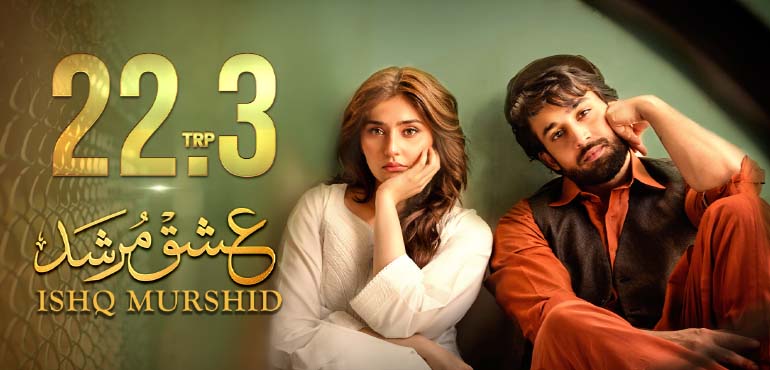Unraveling the Emotional Complexity of Pakistani Drama "Ishq Murshad"
In
the ever-evolving landscape of Pakistani television dramas, "Ishq
Murshad" emerges as a poignant exploration of human relationships,
societal norms, and the intricacies of love and faith. Directed by Amin Iqbal
and written by Ameer Shah, this drama series delves into the lives of its
characters with a depth that resonates with audiences far and wide.
At
its core, "Ishq Murshad" revolves around the entangled lives of its
protagonists, weaving a narrative that transcends mere entertainment to reflect
upon the complexities of human emotions and moral dilemmas. Set against the
backdrop of Pakistani society, the drama skillfully navigates through themes of
love, betrayal, redemption, and the perennial struggle between personal desires
and societal expectations.
One
of the most compelling aspects of "Ishq Murshad" is its portrayal of
characters that are deeply flawed yet undeniably relatable. The protagonist,
played with remarkable finesse by seasoned actor Nauman Ijaz, embodies the
quintessential anti-hero whose moral ambiguity challenges the audience's
perceptions of right and wrong. His portrayal of a charismatic yet morally
bankrupt individual is nothing short of mesmerizing, leaving viewers
oscillating between empathy and disdain for his actions.
The
female leads, portrayed by Saba Qamar and Sajal Aly, bring a sense of depth and
vulnerability to their respective roles, offering a stark contrast to the
machismo displayed by the male characters. Their performances resonate with
authenticity, portraying the internal struggles faced by women in a patriarchal
society where their choices are often dictated by societal norms rather than
personal agency.
Central to the narrative of "Ishq Murshad"
is the exploration of love in its myriad forms. From the intoxicating allure of
forbidden romance to the profound bond between parent and child, the drama
traverses the spectrum of human relationships with nuance and sensitivity. It
challenges conventional notions of love and loyalty, forcing its characters to
confront the consequences of their actions in the pursuit of personal
fulfillment.
Moreover, "Ishq Murshad" transcends
the confines of a typical romantic drama by delving into the complexities of
spirituality and religious devotion. The character of the Murshad (spiritual
guide), played with gravitas by Adnan Siddiqui, serves as a moral compass
amidst the moral decadence that permeates the narrative. His interactions with
the protagonist offer moments of introspection, urging viewers to contemplate
the dichotomy between religious piety and moral righteousness.
In addition to its compelling
storyline and stellar performances, "Ishq Murshad" is visually
stunning, with cinematography that captures the scenic beauty of Pakistan's
landscapes while evoking the emotional depth of its characters. The soundtrack,
composed by the renowned Sahir Ali Bagga, further enhances the viewing
experience, eliciting a range of emotions that resonate long after the credits
roll.
However, "Ishq Murshad" is not without
its criticisms. Some viewers have pointed to its portrayal of certain societal
issues as overly sensationalized, while others have questioned its portrayal of
female characters as passive victims of male dominance. Nevertheless, these
criticisms do little to detract from the overall impact of the drama, which
continues to captivate audiences with its thought-provoking narrative and
powerful performances.
In conclusion, "Ishq Murshad" stands
as a testament to the enduring appeal of Pakistani television dramas in
exploring the depths of human emotion and societal dynamics. Through its rich
tapestry of characters and compelling storyline, it transcends the realm of
entertainment to offer a mirror to the complexities of the human condition. As
viewers embark on this emotional journey, they are reminded of the timeless
adage that love, in all its manifestations, remains the driving force behind
our most profound experiences and enduring struggles.


0 Comments